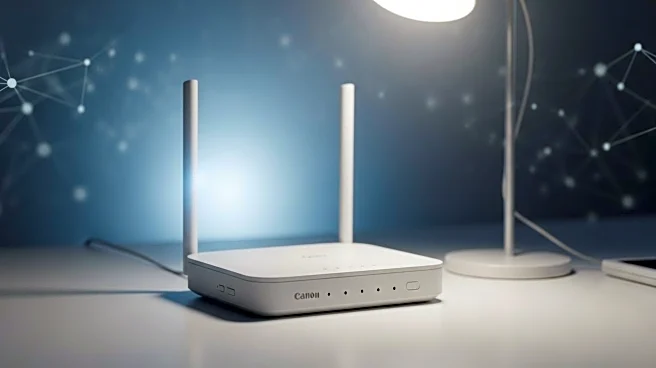What's Happening?
Senate Democrats are challenging the Federal Communications Commission's (FCC) decision to revoke funding for Wi-Fi on school buses and hotspot lending programs. These initiatives, established during the Biden administration, aimed to provide internet access to students, school staff, and library patrons, particularly benefiting those from low-income households. FCC Chairman Brendan Carr has proposed ending these programs, arguing they lead to unsupervised screen time for children. The FCC is set to vote on this proposal at its meeting on September 30. Senate Democrats, led by Senator Ed Markey, have expressed strong opposition, stating that removing these programs would undermine efforts to close the 'Homework Gap' and hinder academic success for students lacking home connectivity.
Why It's Important?
The decision by the FCC to revoke funding for student Wi-Fi programs has significant implications for educational equity in the United States. These programs have been crucial in providing internet access to students who otherwise might not have it, thus supporting their academic success. The revocation could widen the digital divide, particularly affecting students from low-income families who rely on these services for educational purposes. Advocacy groups and Senate Democrats argue that the programs are essential for leveling the playing field and ensuring all students have the necessary tools for learning. The move also highlights broader debates about federal funding priorities and the role of government in addressing connectivity inequities.
What's Next?
The FCC's vote on the proposal is scheduled for September 30, and its outcome could prompt further legislative action. Senate Republicans, led by Senator Ted Cruz, have previously attempted to repeal these programs, and the House has yet to vote on the resolution. If the FCC proceeds with the revocation, it may lead to increased pressure on Congress to codify changes and prevent similar rules in the future. Advocacy groups and Senate Democrats are likely to continue their efforts to oppose the decision and advocate for maintaining these programs.
Beyond the Headlines
The debate over the FCC's decision touches on broader issues of digital equity and the role of technology in education. The revocation of funding for Wi-Fi programs raises questions about the government's responsibility in ensuring equal access to educational resources. It also highlights the tension between regulatory decisions and their impact on vulnerable populations, emphasizing the need for transparent and inclusive policy-making processes.









